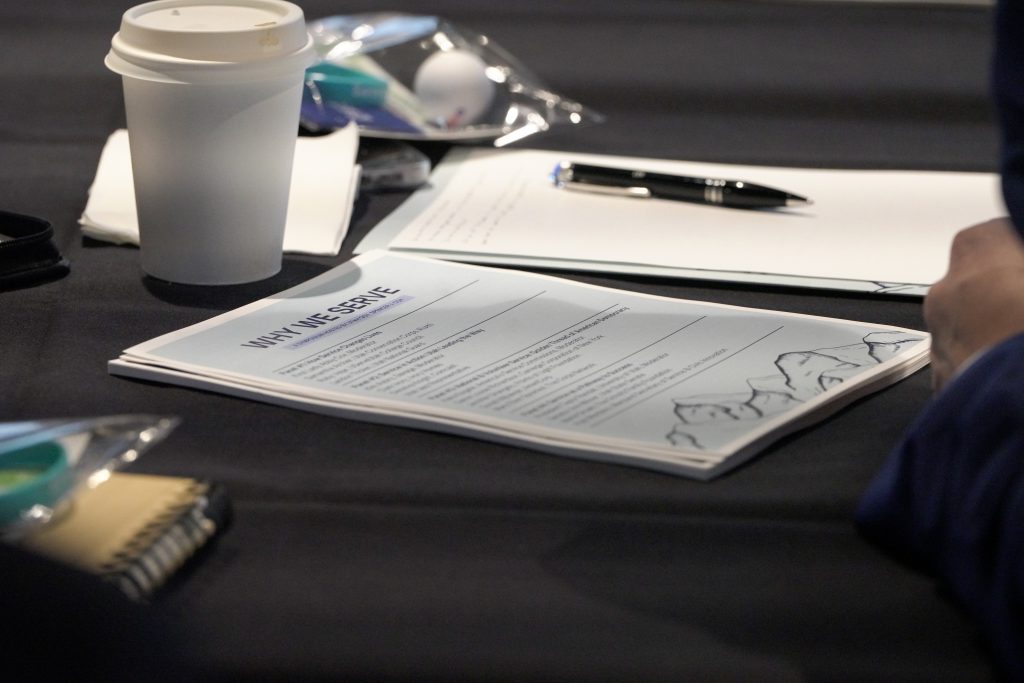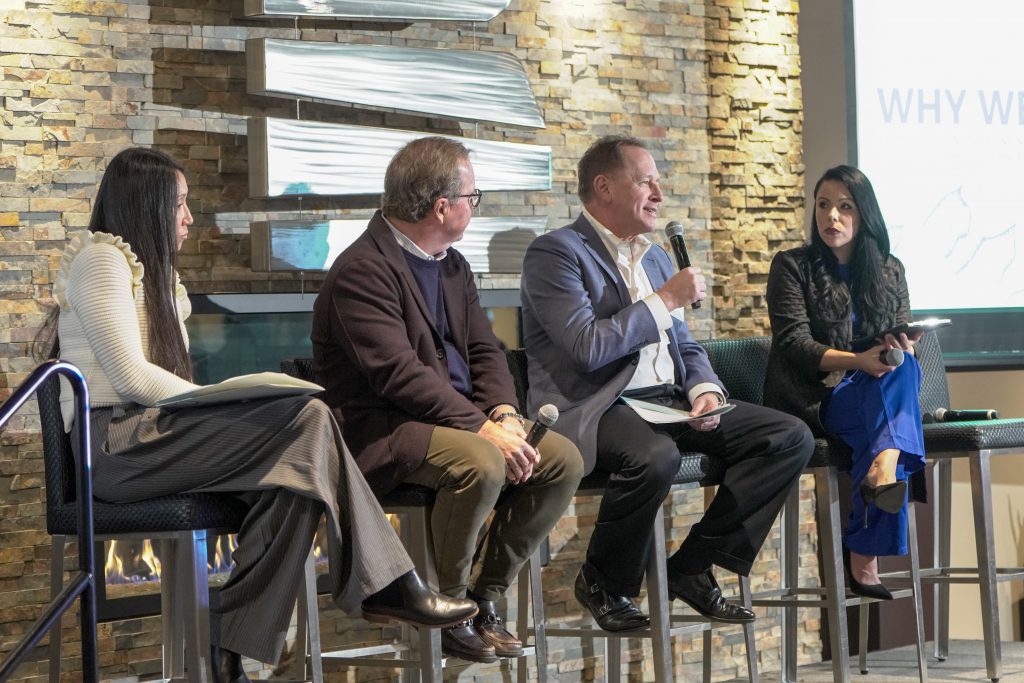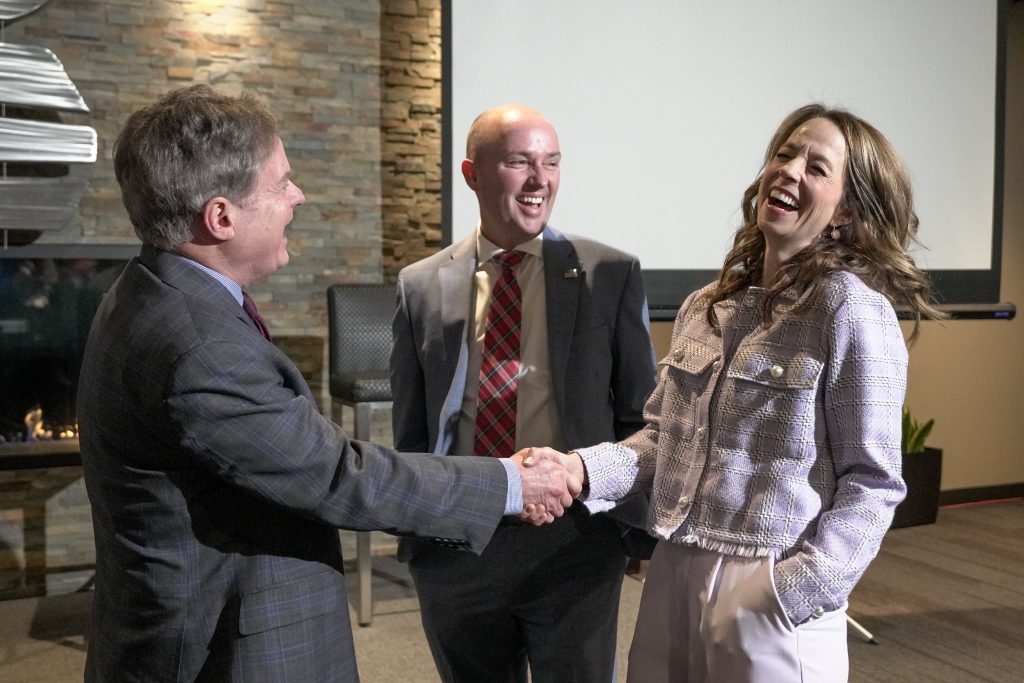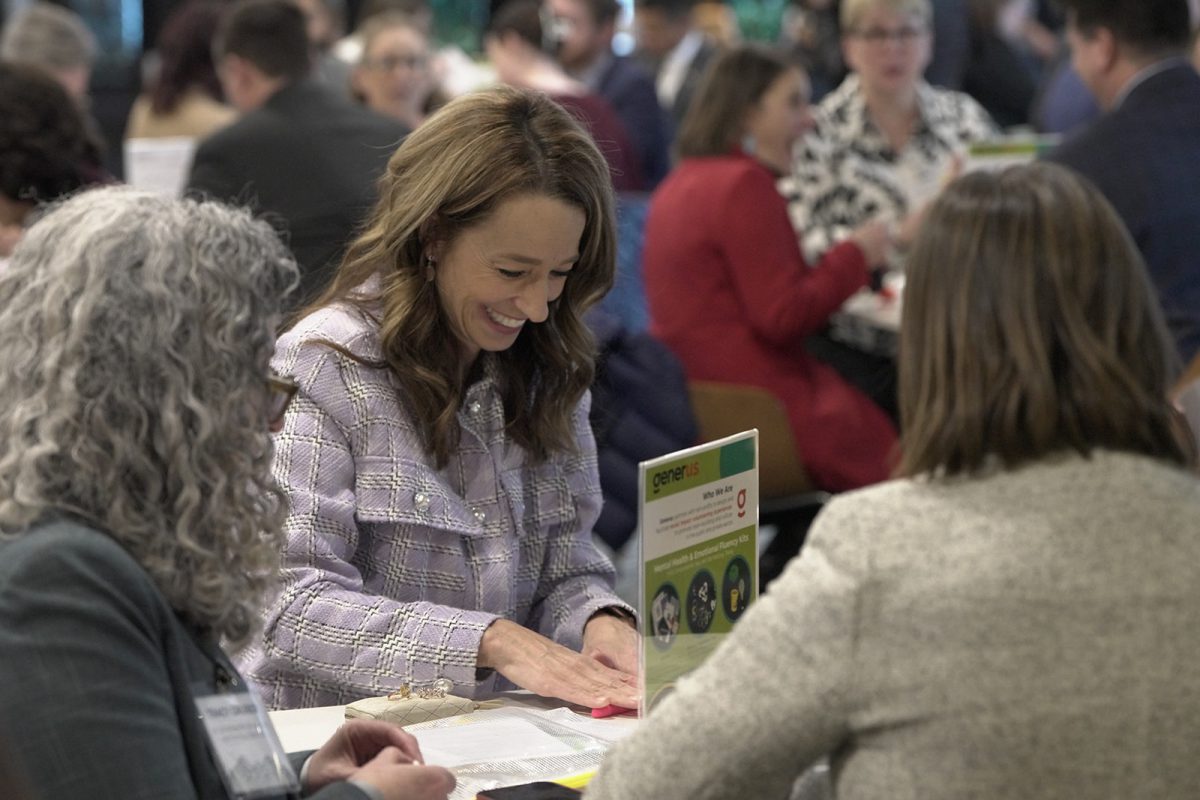Utahns don’t just talk about service. We jump in to volunteer in our neighborhoods, our schools, and our communities. And we join our colleagues in service, thanks to businesses who make volunteerism part of their corporate culture.
Utah’s commitment to service has been confirmed for the past 18 years as part of Volunteering and Civic Life in America research. Last year’s survey reported that Utah maintained its No. 1 ranking in the nation in formal volunteer service, while we were ranked No. 7 in informal service.
That commitment to service — personally and professionally — was underscored during a “Why We Serve: A Symposium on State and National Service” on Jan. 8 led by Utah Gov. Spencer J. Cox and First Lady Abby Cox and national and local leaders.



“Service and the commitment to give back are defining features of our state culture and we want to keep it that way,” Gov. Cox said at the symposium. “Volunteering has benefits for the giver, the receiver and the entire community, and that’s why we’re launching several initiatives that support volunteering.”
His proposed fiscal year 2025 budget includes funding for a new service pilot program in several Utah high schools that sets expectations for service hours and facilitates service opportunities for students; a national year of service fellowship program providing stipends for young adults who complete approved service projects; and tuition assistance and bonuses for those who give back through Utah National Guard service. UServeUtah, the state’s commission on service and volunteerism and a division of the Utah Department of Cultural & Community Engagement, will be helping to launch those youth programs.
Gov. Cox also announced results of a recent survey: 61 percent of Utahns support having a community service graduation requirement for high school seniors. Among respondents ages 18-34, 59 percent support such an effort. When asked about support for young Utahns participating in an optional year of service while receiving a living stipend or educational scholarship, 65 percent overall said yes; 80 percent of respondents ages 18-34 support the effort.
As part of the conversation, Nubia Pena, senior advisor for equity and opportunity and director of the Utah Division of Multicultural Affairs, moderated the Service in Action: Utah Leading the Way panel, with business leaders Kirk Aubry from Savage Companies, Clark Ivory from Ivory Homes, and Kari Holt Larson from the Utah Jazz. The Jazz are partnering with the Martin Luther King Jr. Human Rights Commission for this year’s MLK Day Youth Event on Jan. 15, which introduces Dr. King’s principles of nonviolence during a day of activities at the Delta Center. (Information about last year’s event here.)
At the symposium, Gov. Cox announced a $1.1 million contribution for service programs in Utah from the Carnegie Corporation of New York. The Jan. 8 symposium concluded with a service project to benefit students served by the University of Utah’s new in-school mental health clinic at West High School.
Learn about UServeUtah’s community engagement pathways survey here, and visit MCA’s website to learn more about youth leadership programs and the state’s MLK Commission.

